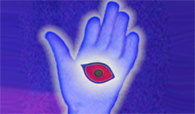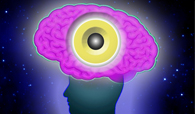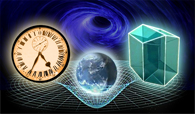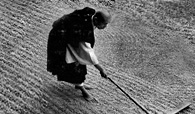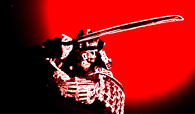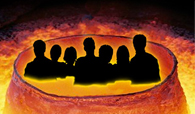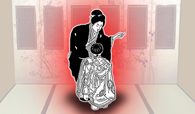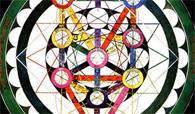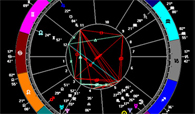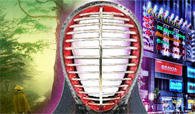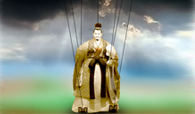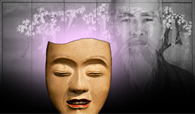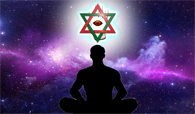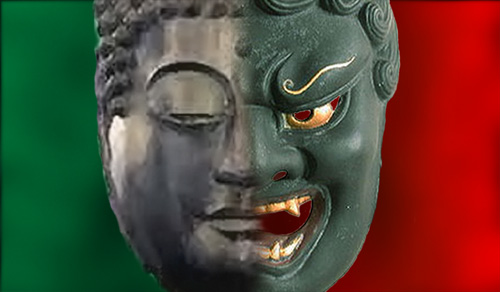
As a highly controversial and sometimes hated character...
...there is much that Kendo Nagasaki has to teach regarding good and evil.
Just as there are no such things as good or bad Astrological combinations, there are, in fact, no things or events in the universe that are either good or evil. The one is the reflection of the other, and both are simply opposing sides of the same coin. Furthermore, in common with Astrology, events can be at least as symbolic as planetary configurations.
There is an interesting lesson about good and evil from philosophy: if a good man performs a good deed, it is neutral on the scale of good and evil – the man has acted in accordance with his nature, and his actions have not changed the quality of the world, or how events may have been expected to turn out. If a bad man performs a good deed, he has acted against his nature in a positive way, and his actions have brought about an unexpected increase in the quality of the human experience. If a good man performs a bad deed, he has done the same, in the opposite direction.
Quite why people may act against their natures and the origins of the reasons and the meaning of the consequences is complex, and is considered in the section on Karma and Destiny, but an understanding of the roles of good and evil is necessary before going there.
An ideal starting point is Kendo Nagasaki's own enduring controversy concerning good and evil; why would he choose to bend the rules in a wrestling match, when he clearly has so much skill and can win matches based upon his skill alone? The answer is that a fundamental part of his role has been to be an instrument of the balance between good and evil.
It has been said that there is an equal balance between good and evil in the world – that for all good there is an equal amount of evil, and so the quality of the human experience balances out at a constant level. This is not necessarily the case – it is possible to shift the balance, to raise the quality of the human experience by raising awareness of right and wrong, but there is only one way to bring this about: by motivating large numbers of people to see the difference, by example, and making them want to see the right thing done. It has been Kendo Nagasaki’s role to provide that contrast.
Thus, the wrestling ring became an arena wherein archetypes fought for dominance, raising awareness of issues of rightness, not just through the actions of the combatants, but also through the quality of those actions.
To accuse Kendo Nagasaki of being “evil” is to miss the point – the “meaning” of his actions has always been beyond good and evil, and has actually resided in shattering our illusions of right and wrong.
How is it possible for a man to be a spiritual guide and a healer, as well as seeming to be a bully? The answer lies in re-examining our concepts, and if Kendo Nagasaki can cause us to do this, then he has enlightened us, as opposed to allowing us to continue indulging in simplistic value-judgements – to merely label him as “evil” is to miss an opportunity to evolve one’s consciousness.

